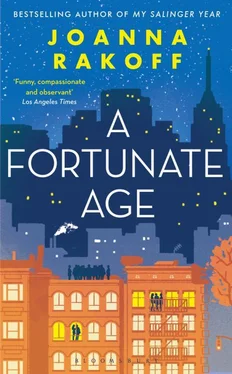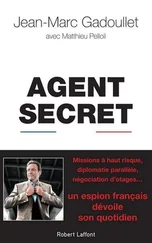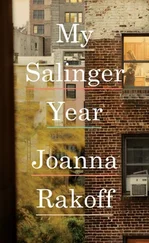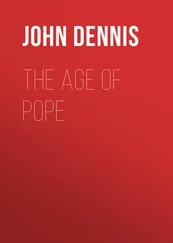It had taken her some time to realize that Curtis was, despite appearances, still under the thrall of his parents’ expectations. When she’d met him, a year prior, she’d thought him the exact opposite, some sort of pure being, like a bodhisattva, shot down from a higher plane to bless mortals with his unusual wisdom. He didn’t want to talk about any of the things other people talked about at parties: new restaurants, rents, movies. He hadn’t read a magazine since 1984, when his subscription to Highlights expired, and he hadn’t read a book published since around that same date, other than Vineland (he was mad about Pynchon, the only person she knew who’d made it through Gravity’s Rainbow ). He didn’t go to movies and didn’t own a television. He hadn’t asked her what she did or where she lived or how she found her apartment. What did they talk about? she wondered now, padding around her clean apartment. Family, she supposed. Art.
On her second visit to Montclair, in March, Mr. Lang served a cassoulet—“French peasant food!” he cried in such a way that Emily knew he shouted this whenever he served the dish—and a big salad, and talked at length about the wine, which came from a grape that had fallen out of vogue but was now being revived by artisanal vintners in Virginia (“Turns out the soil has the exact same pH level as the Loire”). After dinner, Mrs. Lang shooed Emily and Mr. Lang into the study—they’d eaten at the big plank table in the Langs’ sleek open kitchen—and summoned Curtis to help her with the dishes. “How about some port?” asked Mr. Lang, raising one bony finger, and slipped through the study’s second doorway, which led to a funny little passageway under the stairs. Emily was left alone in the Lang study, a dark, book-lined room straight out of Martha Stewart, though presumably the room’s design and decoration predated Martha Stewart’s invention of herself as the arbiter of things domestic. Emily ran her finger over the books in the cases: medical and psychological texts, British mysteries, short stories by Cheever and Carver and McCullers, paperback thrillers, a shelf of yellowing editions of poetry, presumably dating to the Langs’ undergraduate days. One section of a bookcase was covered with a massive door, behind which, Emily suspected, was a television. She imagined Curtis as a towheaded kid, lying on the flat kilim, watching cartoons.
From the kitchen came the low murmur of Curtis’s voice, punctuated by the higher, sharper inflections of Mrs. Lang. Emily tried not to listen, until she heard Mrs. Lang say, unmistakably, “What’s Amy up to these days?” Curtis’s response—or the parts of it she could make out, from where she sat frozen in an oversized leather club chair—had something to do with Amy’s continuing legal problems, following her arrest in Seattle at the WTO the previous year, and the fallout from a massive protest against Crown: a mock New Orleans funeral for the company, with an effigy of its CEO in a coffin, and a fifteen-piece brass band (“It was really cool”). Emily had read about the protest in the paper—and heard a bit about it from Lil, as Caitlin Green-Gold and her husband were, of course, involved—and wasn’t surprised to hear that Amy the Anarchist had been in attendance. But she was surprised that Curtis could outline Amy’s activities for his mother. She’d been under the impression they were barely in touch. Just calm down , she told herself. It’s not a big deal.
But a few days later, she flew into a rage—“You still love her!” etc.—and Curtis confessed that part of the time he didn’t spend with Emily—Sundays, his time, he’d said, for solitude—was spent at Amy’s place, visiting Dudley, the grayish, wiry-haired dog they’d adopted in college. Curtis kept a photo of Dudley in his wallet and looked longingly at every dog they passed on the street. “I miss him,” he told her. “He’s an old guy. He’s not going to be around much longer.” Emily’s fury—tamped down, briefly, by thoughts of Dudley—leapt into her throat again.
“Well, I’m sure it’s good to see Amy, too,” she said, in a clipped, formal tone. “You guys have known each other for so long. It would be terrible if you just, you know, never spoke.” Curtis nodded slowly. He appeared to be slightly afraid of her, which only made her more angry.
“Yeah, you’re right,” he said carefully, after a while. “I was a terrible husband to her and I feel like I can kind of make it up to her by being a good friend. She can’t really take care of herself. It’s hard for her, being alone.”
Emily refrained from pointing out that Amy had a boyfriend who lived on her block—whom she’d started sleeping with while she and Curtis were still living together—and so she wasn’t alone , was she? She also managed to restrain herself from mentioning this development to her friends, since she knew they would make too big a deal out of it. But she added a third Curtis to the list: the Curtis who spent time with Amy on Sundays. She would never meet this Curtis and that was absolutely fine with her. She wondered whether he and Amy talked about politics or their mutual friends or the weather or what, and whether, in doing so, he studiously avoided mentioning Emily, as he avoided mentioning Amy to Emily.
Not that it mattered. On Sunday afternoons she went about her chores with the specter of Amy trailing her, like some kind of hovering, bewinged Disney witch. Come Sunday night she often felt that she’d rid herself of this ghost, so content was she in her small, neat home, her three plants watered, her hair freshly washed, her bed lined with clean sheets, her laundry folded and put away, her face pink and exfoliated, a pot of tomato sauce bubbling on the stove. Some Sundays, she even found herself dreading Curtis’s Monday invasion. Maybe, really, she was meant to be alone. Maybe she preferred being alone and she’d simply been conditioned by the media—or society in general—to think she had to partner off with someone and start a family and so on.
This was how she felt on some Sundays. On other Sundays—like this one, the day before their anniversary—Amy remained unvanquished, a convenient repository for all Emily’s fears and anxieties. As the evening wore on, she practically had to sit on her hands in order to keep herself from picking up the phone and calling Curtis. This was another thing she’d sworn she wouldn’t do: call him on Sundays. She didn’t want to seem incapable of going a day (less, really!) without speaking to him. Nor did she want to appear to be checking up on him, making sure he actually came home from Amy’s place, though of course she did want to make sure, particularly since the Monday, back in April, when Curtis walked in the door, kissed the top of her head, and announced, quietly, that he was going to quit drinking.
“Quit drinking,” Emily parroted, shocked. Curtis loved to drink. More than anyone she knew. She put down the bottle of wine in her hand. “Quit drinking ,” she repeated. The phrase sounded strange and false to her, like something from a Jimmy Stewart movie or an Arthur Miller play, as though drinking were Curtis’s occupation and he’d decided to leave it and pursue something more lucrative, like selling aluminum siding. “Why?” she asked, hearing a whine creep into her voice. Curtis shrugged and smiled, sitting down on Emily’s gray couch. He picked up that week’s New Yorker , which lay open to the movie reviews, the section Emily read first. “Curtis, why ?” she asked again, sitting down next to him and taking one of his hands in her own. Instead of looking at her, he glanced blankly at the bottle of wine on the counter.
Читать дальше












